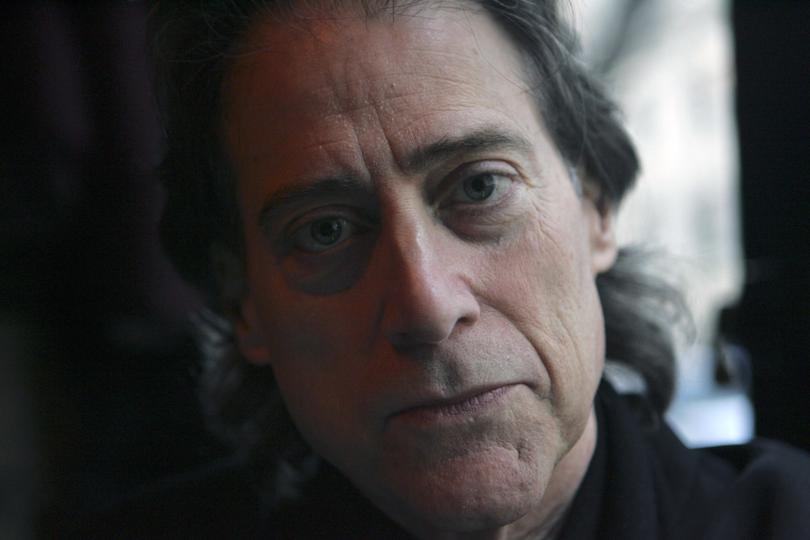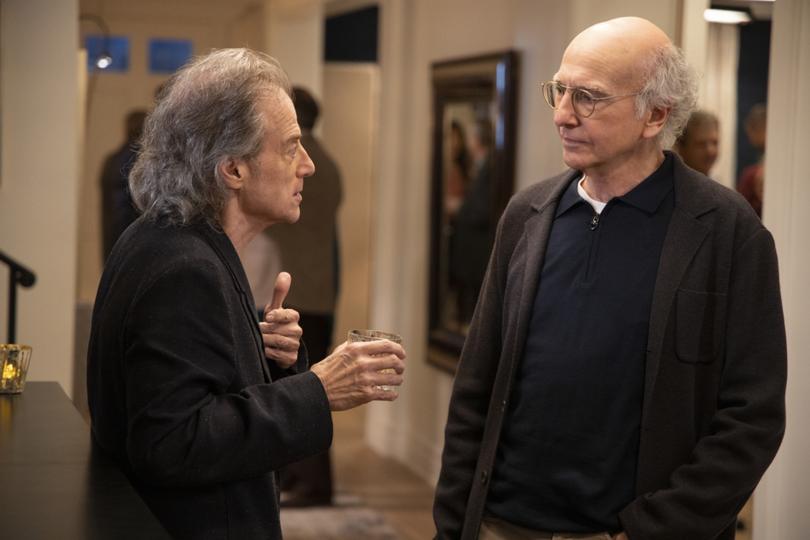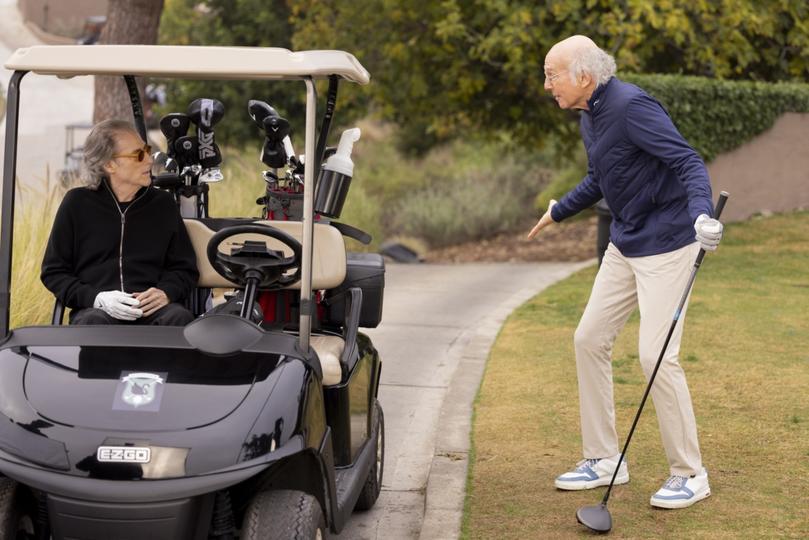Vale: Tributes flow for Richard Lewis, the ultimate comedian’s comedian
Richard Lewis’ death has been felt strongly across the comedy community, with his brand of raw and self-deprecating humour branded revolutionary.

Bracingly honest and forever self-deprecating, Richard Lewis’ death has been felt not just by his many fans but by the comedy community.
Widely respected by his peers, Lewis was known as a comedian’s comedian. He made his cutting sarcasm look so effortless while the neuroses that marked his stand-up routines and public persona made him relatable.
Turning his wit on himself, he would take shots at his paranoia (“On my stationary bike, I have a rear-view mirror”) and state-of-mind (“Happiness sets me up for needless despondency”). He riffed about his alcoholism and not being loved by his mother and all that unguarded rawness earned him the nickname “Prince of Pain”.
Sign up to The Nightly's newsletters.
Get the first look at the digital newspaper, curated daily stories and breaking headlines delivered to your inbox.
By continuing you agree to our Terms and Privacy Policy.Lewis never took himself too seriously even though you knew he must have taken his work seriously. His stand-up sets and his jokes were tight, and he had a deep understanding of the craft of comedy. David Letterman loved having Lewis on his late-night show so much that Lewis was booked 48 times.

His long-time friend Larry David cast him in Curb Your Enthusiasm, which introduced Lewis to whole new generations of fans, many of whom know him best as Larry’s onscreen friend. The pair’s banter and seemingly stream-of-consciousness jibing pointed to a familiarity you cannot fake.
Lewis told Vanity Fair earlier this year that he was basically playing himself on Curb, right down to the clothes which are his own, “I don’t really see a difference with me on screen, except for an occasional time when I might be a little harsher than I might be in general. Generally speaking, though, I’m myself”.
Lewis’ performance also rounded off the edges of the notoriously grumpy fictionalised Larry because if Richard could love Larry, then there was something there.
David, who went to summer camp as kids with Lewis, led the tributes today after Lewis’ death from a heart attack at the age of 76.
“Richard and I were born three days apart in the same hospital and for most of my life, he’s been like a brother to me. He had that rare combination of being the funniest person and also the sweetest. But today he made me sob and for that I’ll never forgive him,” David said.
Many of the messages from comedians and stars have pointed to Lewis’ capacity for kindness and decency as well his talent.

Ben Stiller said, “I never met a kinder, more empathetic comedy genius. He was so funny. And deep. As a stand-up, he was really iconic in the 70s. Cool, funny, self-deprecating and hip. He was a friend to my parents and the whole Stiller family. As a kid, I remember seeing him at the improv and how nice he was to me and my sister.”
Bill Burr called Lewis a “true original” and “absolutely fearless” while comedian and filmmaker Paul Feig wrote, “Richard was my hero when I was a stand-up. I was lucky enough to get to know him and he was the most wonderful man.”
The executive director of the US National Comedy Center, Journey Gunderson, spoke of Lewis’ enduring contribution to the industry, “Richard Lewis was part of a changing of the guard in stand-up history during the 1970s, his work exemplified and anticipated the deeply personal, raw, introspective and, yes, neurotic tone that has come to colour so much contemporary comedy. His influence on the art form was profound.”

For his part, Lewis had a deep appreciation of those who opened the door for him. He befriended older comedians including Phyllis Diller and Jonathan Winter, and Buster Keaton’s widow, and spoke admiringly of legends such as Richard Pryor, Lenny Bruce and Mel Brooks.
On the first time he heard Brooks’ comedy, he told a PBS special, “Who is this man? I thought he was the messiah, it was like finding the holy grail. I had never heard of a brain twist words so articulately and in such a fashion. I was hooked. It was like getting a shot of comedic heroin. It transformed me, that moment.”
Lewis went public with his health battles which included several surgeries and a Parkinson’s diagnosis, and earlier this month, he told VF that it had changed his outlook. “It’s been a combination of forcing myself to look back and be grateful. I’ve had such an amazing life, I still do. I’m a lucky man.”

